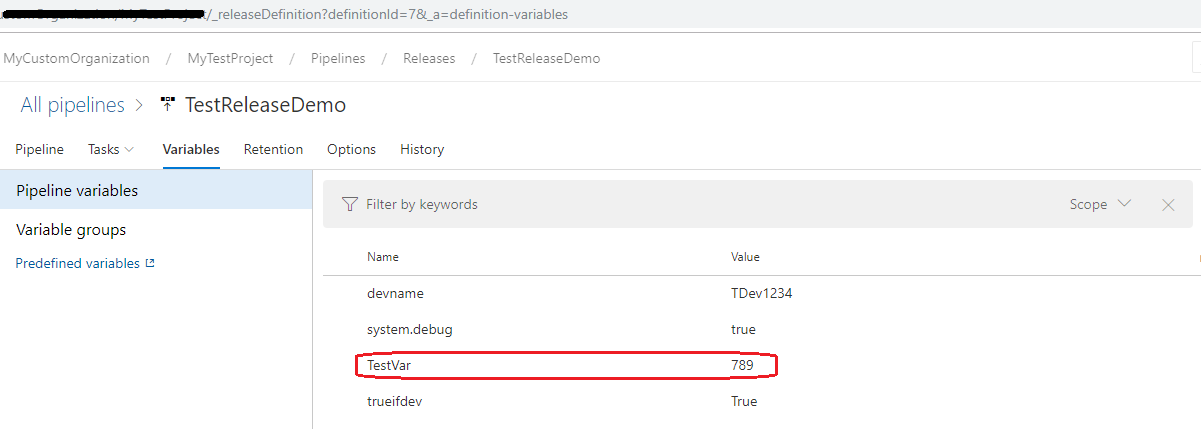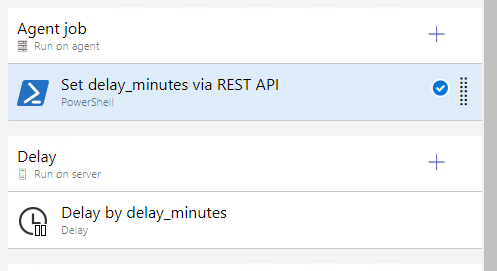Set Azure devops Release pipeline variable using REST API
We could use the REST API Definitions - Get to get all the info about this definition in the body, then we could update the body and use the (Definitions - Update) to update the value of the release definition variable from a release pipeline:
PUT https://vsrm.dev.azure.com/{organization}/{project}/_apis/release/definitions/{definitionId}?api-version=5.0
Following is my test inline powershell scripts:
$url = "https://vsrm.dev.azure.com/{organization}/{project}/_apis/release/definitions/{definitionId}?api-version=5.1"
Write-Host "URL: $url"
$pipeline = Invoke-RestMethod -Uri $url -Method Get -Headers @{
Authorization = "Bearer $env:SYSTEM_ACCESSTOKEN"
}
Write-Host "Pipeline = $($pipeline | ConvertTo-Json -Depth 100)"
# Update an existing variable named TestVar to its new value 2
$pipeline.variables.TestVar.value = "789"
####****************** update the modified object **************************
$json = @($pipeline) | ConvertTo-Json -Depth 99
$updatedef = Invoke-RestMethod -Uri $url -Method Put -Body $json -ContentType "application/json" -Headers @{Authorization = "Bearer $env:SYSTEM_ACCESSTOKEN"}
write-host "=========================================================="
Write-host "The value of Varialbe 'TestVar' is updated to" $updatedef.variables.TestVar.value
As test result, the variable TestVar updated to 789:
![enter image description here]()
Update:
But I want to achieve it without updating\changing the definition
The answer is yes. You could use the Releases - Create with request body:
{
"definitionId": Id,
"environments": [
{
"variables": {
"TestVar": {
"value": "xxxx"
},
"TestVar2": {
"value": "xxxx"
}
},
}
],
}
For more information refer the post here.
Hope this helps.



